Hydrogen plug-in hybrid a solution?
Opel, Peugeot and Renault include hydrogen plug-in hybrids in their range of vans. Moreover, Renault has already shown a concept of a passenger car with such a powertrain. Short trips are doable with the compact battery that offers a range of several dozen miles. Longer distances involve hydrogen, which is converted to electricity and water in a fuel cell. Then the driving range is soon hundreds of kilometers. Interesting right? Because refueling hydrogen is faster than recharging. Unfortunately, there aren’t many hydrogen stations, so what are the manufacturers really aiming for with a hydrogen plug-in hybrid?
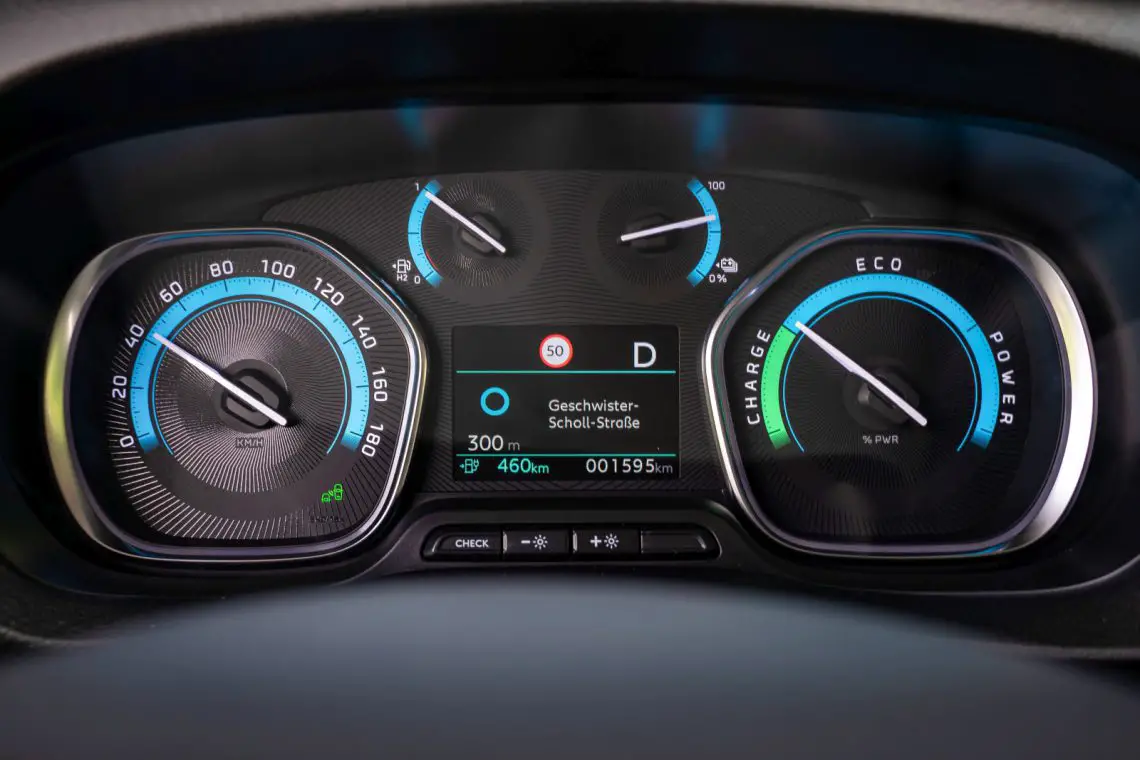
Hydrogen plug-in hybrid is future
The hydrogen plug-in hybrid is primarily a future option, according to its creators’ rationale. It is expected that we will soon have more hydrogen stations along European highways and that charging stations will be found mainly in and near cities. Also because storage of large amounts of hydrogen in densely populated areas will be restricted in legislation. As is the case with LPG. You don’t see those stations in the middle of the city either, for safety reasons.
Hydrogen-powered delivery vans
For now, automakers see the hydrogen plug-in hybrid as an option for businesses. For cars that are on the road every day, such as vans. Locally in the city, those have enough driving range with the battery. For longer distances and more prolonged use, the hydrogen fuel cell is the added value. In a few minutes the tank is full and with a 4 to 5 kg of hydrogen gas you can easily travel 400 km with the van. Within that radius, the next hydrogen station will certainly be found in a few years. The number of stations in the Netherlands is also growing steadily.
Opel Vivaro-e Hydrogen
The Opel Vivaro-e Hydrogen, presented in 2021, is a commercial vehicle with such a plug-in fuel cell powertrain. The range is more than 400 kilometers with 4.4 kg of hydrogen on board and a 10.5 kWh battery. Of these, you can drive up to 50 km on the power of the battery, which you can recharge at a charging station if necessary. The payload of 1,100 kg is higher than the “regular” Vivaro-e because the battery is lighter. This is another benefit(s) for business use.
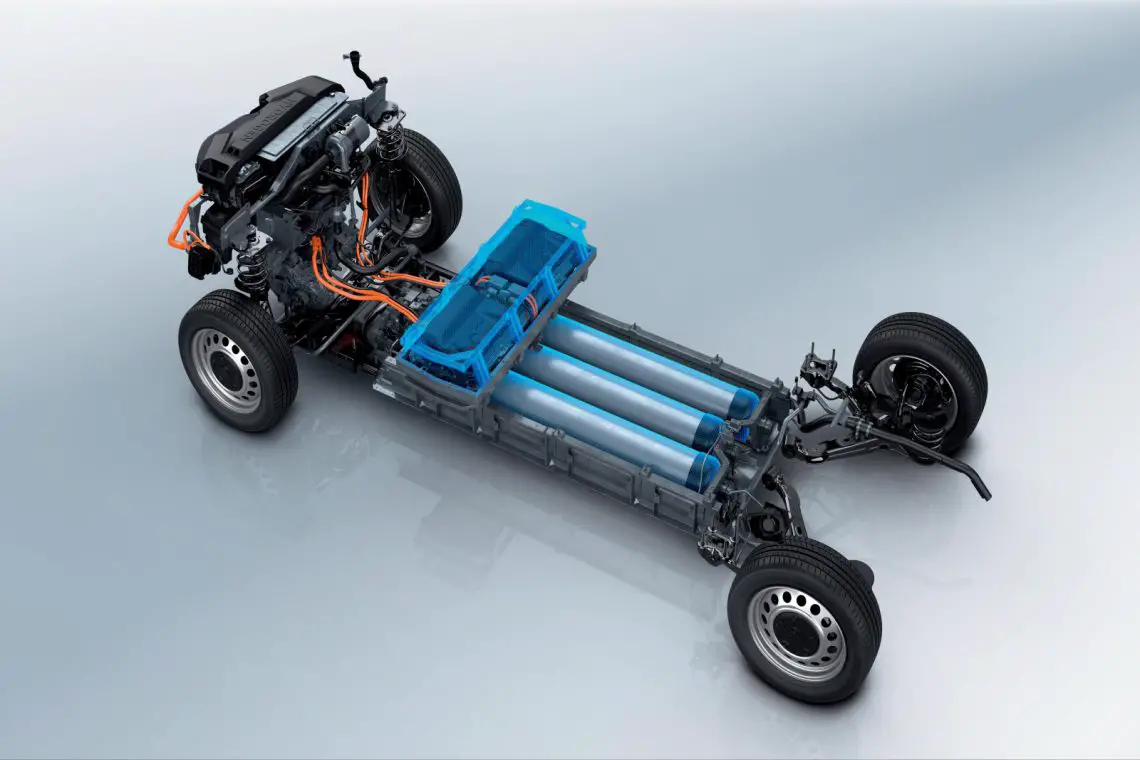
Peugeot e-Expert Hydrogen
Peugeot has presented a hydrogen plug-in hybrid based on the electric e-Expert. This ‘Hydrogen’ version is almost identical to the Opel Vivaro-e HYDROGEN. Logical because technically they are the same vans. For example, both have an electric motor of 100 kW. After all, Opel and Peugeot belong to the Stellantis Group.
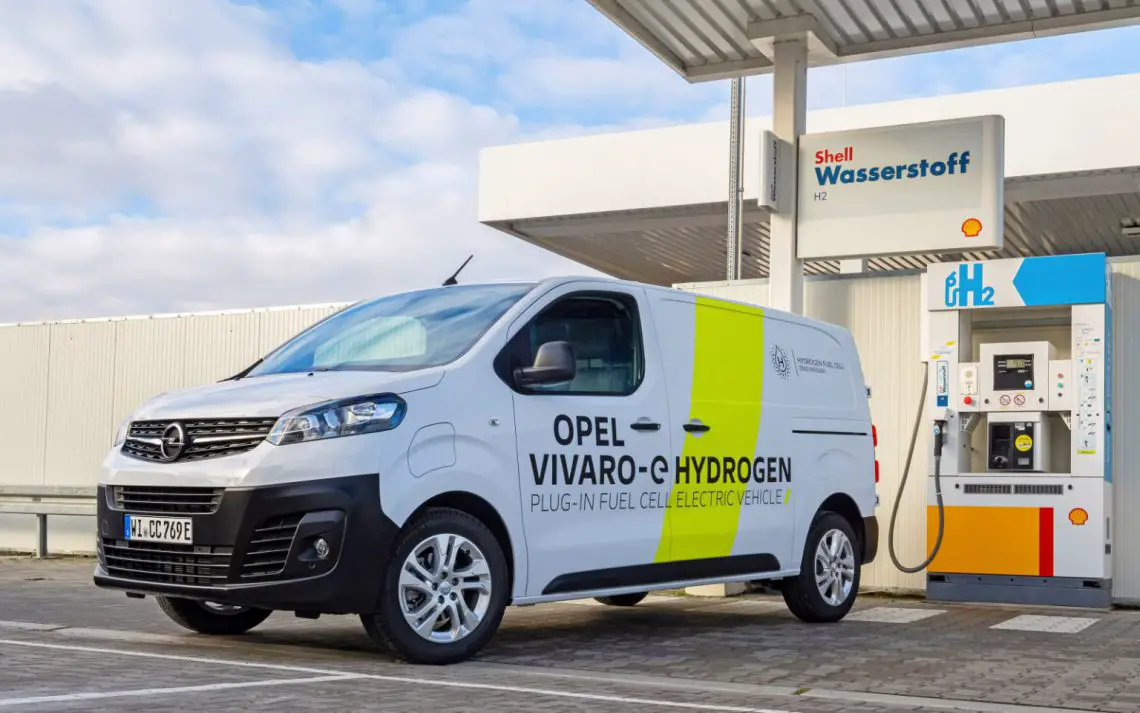
Renaults Trafic and Master
Renault expects to launch the battery and hydrogen fuel cell electric vans developed with Hyvia before the end of this year (2022). These are modified Renaults Trafic and Master. Hyvia has equipped the Renault Master with tanks and a fuel cell above the roof of the van. The first prototype is ready and has already racked up the miles. Hyvia plans to pick up assembly on a large scale with Renault, so that this commercial vehicle can enter the market in 2022.
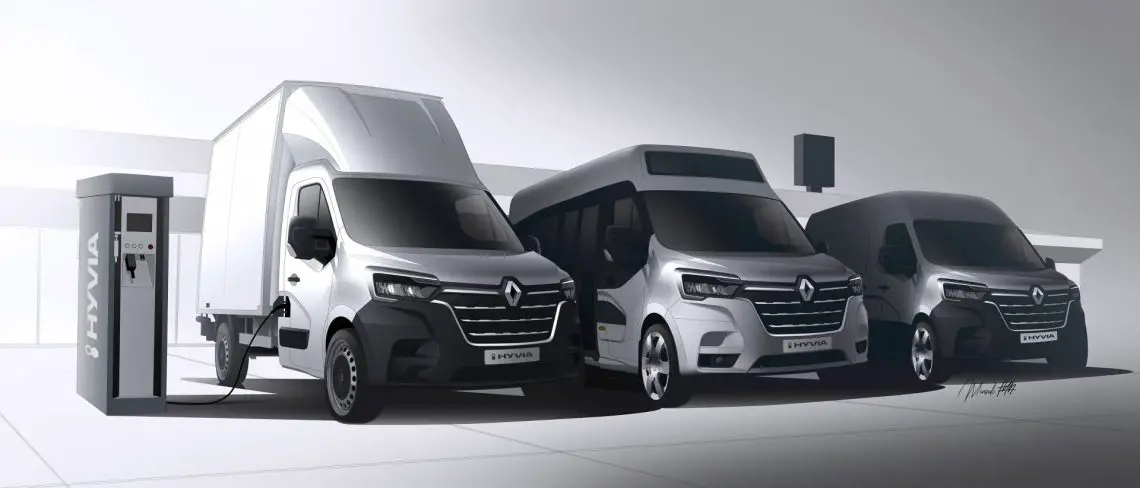
Family car as hydrogen plug-in hybrid
Renault plans to extend the concept to a future family car. That’s the idea behind the Renault Scenic Vision. With a small battery and a fuel cell running on green hydrogen, this is a logical solution for passenger cars that can run emission-free and also cover long distances without spending a long time at the charging station.
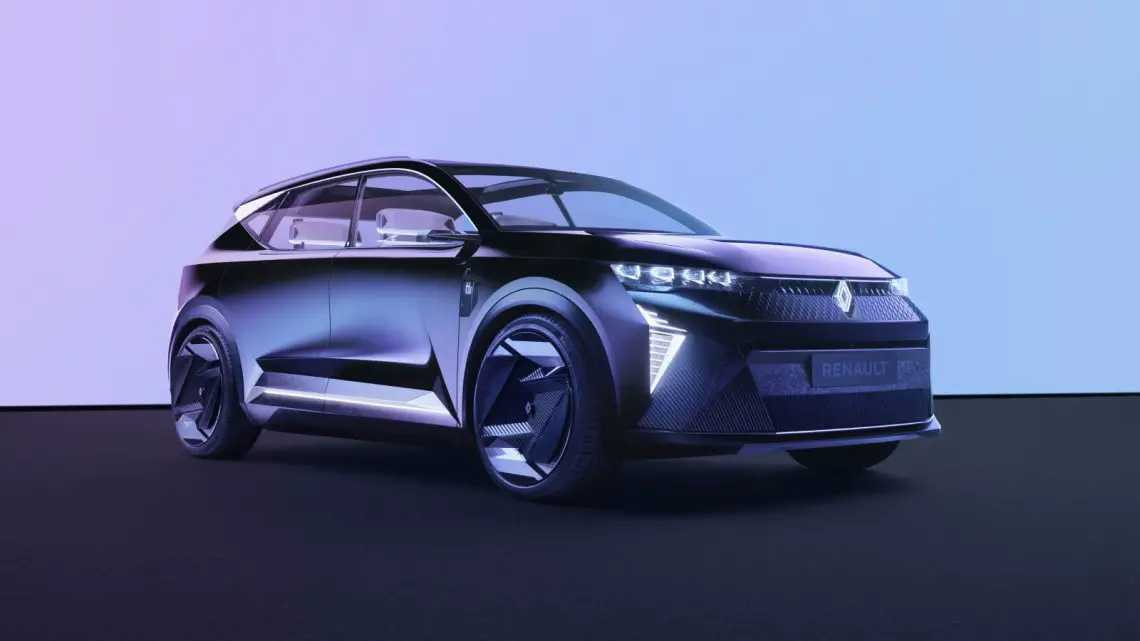
With hydrogen plug-in hybrid up to 800 km
The Scenic Vision’s electric motor delivers 160 kW. The battery has a capacity of 40 kWh. This is supplemented by a 16 kWh fuel cell and 2.5 kg of hydrogen in a small tank. Thus, a range of up to 800 km is possible. The energy on board, with departure point in Paris and with a 5-minute break to refuel hydrogen in Lyon, is enough to cover a trip to Marseille.
Conclusion
In short, the possibilities of hydrogen plug-in hybrids are many and attractive for certain conditions of use. The choice between charging or hydrogen fueling also makes it possible to do shorter trips with power from the charging station at work or at home. Which is cheaper than hydrogen. You have that more expensive energy source on hand for long trips and quick refueling. The hydrogen plug-in hybrids are not yet priced. You can’t order them from any of the brands yet. It is to be expected that the models will be pricier to purchase than their battery-electric variants.

